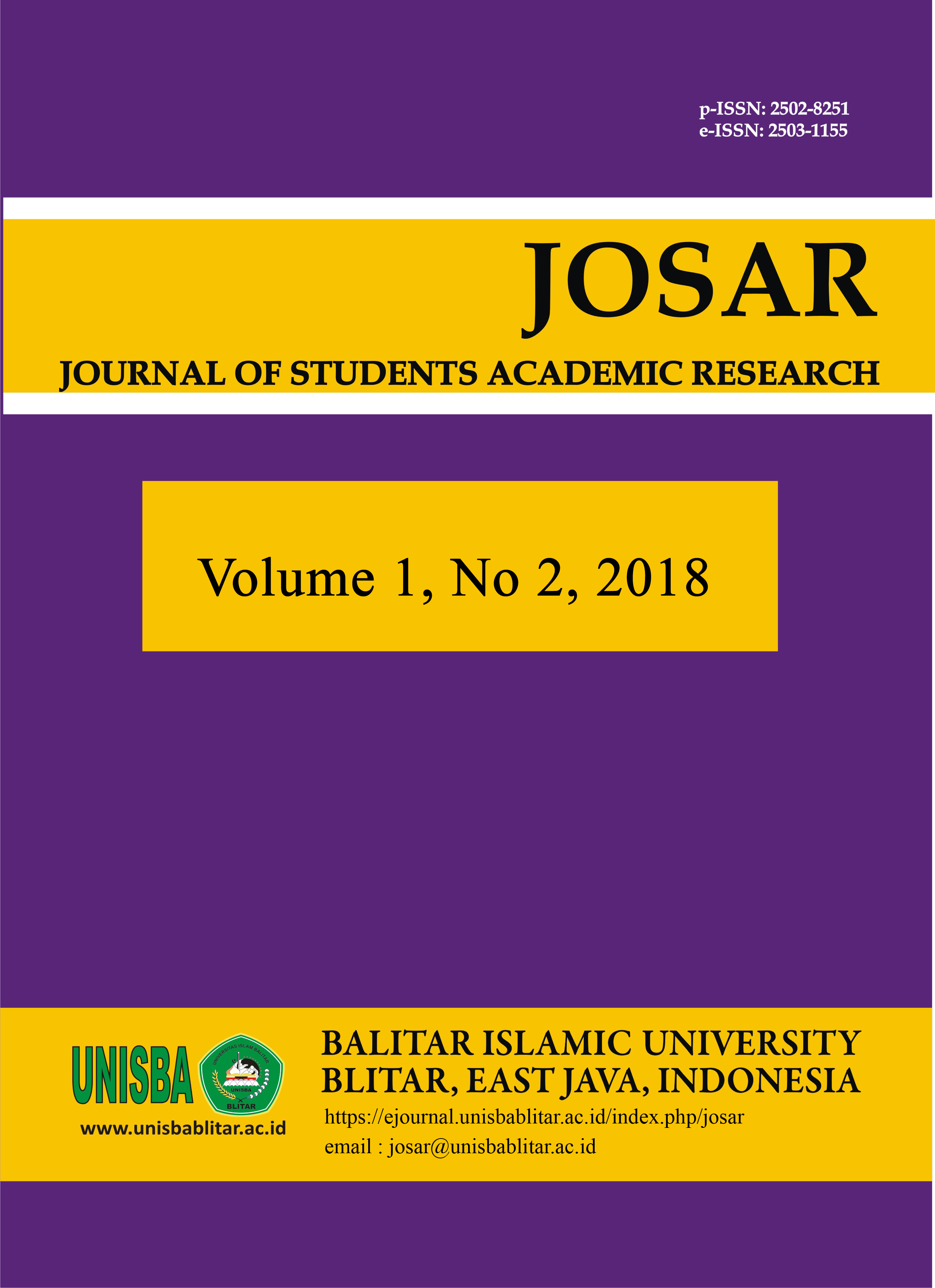THINKING CONCEPT OF KI HAJAR DEWANTARA ”AMONG SYSTEM” AS A KARATER EDUCATION CLIMATE DEVELOPMENT EFFORTS BASED ON LOCAL FUNCTIONAL VALUE
DOI:
https://doi.org/10.35457/josar.v1i02.612Keywords:
Concept of Thought Ki Hajar Dewantara, Character Education and Local Wisdom.Abstract
In the context of efforts to build a nation's life that has national dignity and identity it is certainly not easy to do. There needs to be a clear direction of development and focus on the orientation of the development of quality human resources. The effort to realize this hope is to be guided by one of the national goals, namely to educate the life of the nation. The means to make it happen is through a quality education system and must adapt to the times. The development of a learning system based on local wisdom is very important to help students interpret each trace and the value of the existing local culture. The educational concept of Ki Hajar Dewantara is considered appropriate to be implemented in a character education system based on local wisdom values.The results of this study indicate that the concept of Ki Hajar Dewantara thinking about education provides new direction and hope for the advancement of Indonesian civilization. The Tri concept of the education center and Among's system from Ki Hajar Dewantara is central to the learning of students. The Among method is a teaching method based on kinship based on natural nature and independence. This method has a meaning that educators should follow from behind by helping and encouraging students to develop their potential and to have a positive influence on aspects of their personality. The concept of the Tri center of education also gives meaning to the importance of the learning environment, namely families, schools and communities to instill the value of character education in children The concept of character education from the teachings of Ki Hajar Dewantara which is integrated with local values is considered important as an effort to face the challenges of the development of the dynamics of life in the future.

Downloads
Published
Issue
Section
License
Authors who publish in this journal agree to the following terms:
- Authors retain copyright and grant the journal right of first publication with the work simultaneously licensed under a Creative Commons Attribution License that allows others to share the work with an acknowledgment of the work's authorship and initial publication in this journal.
- Authors are able to enter into separate, additional contractual arrangements for the non-exclusive distribution of the journal's published version of the work (e.g., post it to an institutional repository or publish it in a book), with an acknowledgment of its initial publication in this journal.
- Authors are permitted and encouraged to post their work online (e.g., in institutional repositories or on their website) prior to and during the submission process, as it can lead to productive exchanges, as well as earlier and greater citation of published work (See The Effect of Open Access).
Deprecated: json_decode(): Passing null to parameter #1 ($json) of type string is deprecated in /home/ejournal.unisbablitar.ac.id/public_html/plugins/generic/citations/CitationsPlugin.php on line 68









